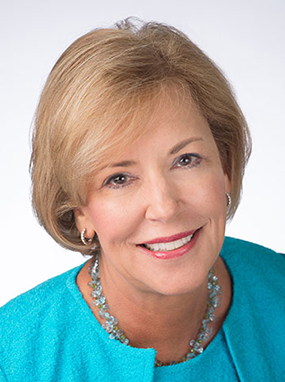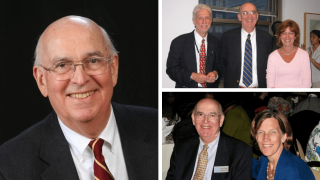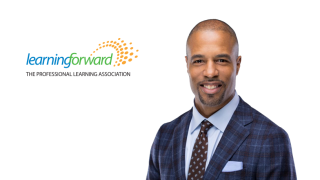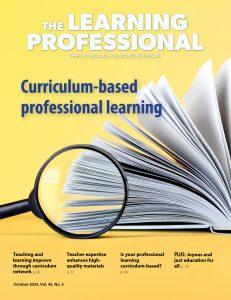Earlier this week, the House of Representatives passed the Every Student Succeeds Act by a 359-64 vote. While there is much to explore and discuss in the bill, Learning Forward’s advocacy efforts related to the reauthorization of ESEA have concentrated solely on professional development.
We believe that ensuring a clear and specific definition of professional development in federal policy, one that aligns with our Standards for Professional Learning, lays the groundwork for states, districts, and schools to create professional learning that has impact. The definition of professional development that appears in the bill is important because it applies to every example of professional development mentioned in the bill.
Overall, we are satisfied with the definition that is included in Every Student Succeeds Act, though we believe that effective professional learning requires more than what the bill describes.
We’re pleased with the first part of the definition. It begins: Professional development means activities that “(A) are an integral part of school and local education agency strategies for providing educators (including teachers, principals, other school leaders, specialized instructional support personnel, paraprofessionals, and, as applicable, early childhood educators) with the knowledge and skills necessary to enable students to succeed in the core academic subjects and to meet challenging State academic standards; and
(B) are sustained (not stand-alone, 1-day, and short-term workshops), intensive, collaborative, job-embedded, data-driven, classroom-focused….”
While there are additional ways to improve upon this part of the definition — it would be ideal to move away from thinking of professional development as “activities” rather than a continuous learning journey — it is affirming that the key words included within it tie directly to Learning Forward’s Standards for Professional Learning. Congress has affirmed that educators’ professional development must be collaborative, job-embedded, sustained, classroom-focused, and data-driven. The definition is also significant because it so clearly focused on school- and classroom-level professional learning.
The legislation continues with this phrase: Professional development “may include activities that …” followed by a long list of professional learning elements, experiences, and topics. For example, professional development may include activities that “improve and increase teachers’ knowledge of the academic subjects the teachers teach.”
The placement of the “may” is significant. Everything before “may include” is essential and officially part of the definition. Everything after “may include” is dependent on the context and needs of the local educators planning and implementing professional learning. To define professional learning too tightly would overlook the differentiated needs of educators and could contribute to schools and systems addressing adult learning through one-size-fits-all solutions. We trust educators to use the key words before the “may” to assess their needs and design their learning objectives and processes, then identify the priorities that best fit their circumstances among those listed after the “may.”
As education leaders and policymakers make sense of the bill once it moves into law, which is expected to happen next week, we are hopeful that in implementing the definition of professional development, they will also consider the following:
- Evaluation of impact must be a part of any professional learning, as it is part of so many other school improvement elements outlined in the legislation.
- The cycle of continuous improvement is the ideal vehicle for making so much of this definition come to life in schools. Through collaborative, continuous problem solving, teachers examine data to understand what student and adult learners need, set professional learning goals and determine learning strategies, apply their new learning with ongoing support, and assess the impact of what they’ve applied in their classrooms.
- Clearly defining the professional learning roles and responsibilities of educators throughout the system helps ensure meaningful implementation and collective accountability for results.
- While the definition of professional development in the bill describes that educators gain “knowledge and skills,” intentionally addressing changes in practice is essential to achieving better results for students.
Defining professional learning meaningfully in policy is one key step. But the definition doesn’t equate to implementation. The hard work of planning, facilitating, implementing, sustaining, and evaluating professional learning happens every day in states, districts, and schools.
As always, Learning Forward is eager to provide educators the support they need to create learning that meets this definition and aligns to the Standards for Professional Learning. Please let us know how we can continue to do so.
This post originally appeared in Learning Forward’s PD Watch.






